Akemi Galvez
dMFEA-II: An Adaptive Multifactorial Evolutionary Algorithm for Permutation-based Discrete Optimization Problems
May 13, 2020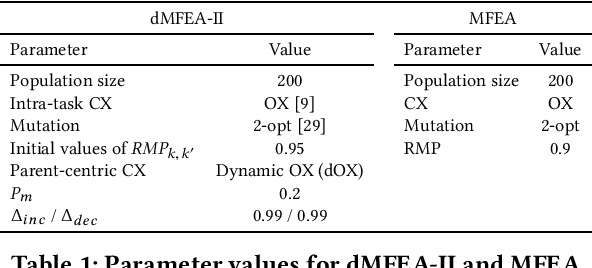
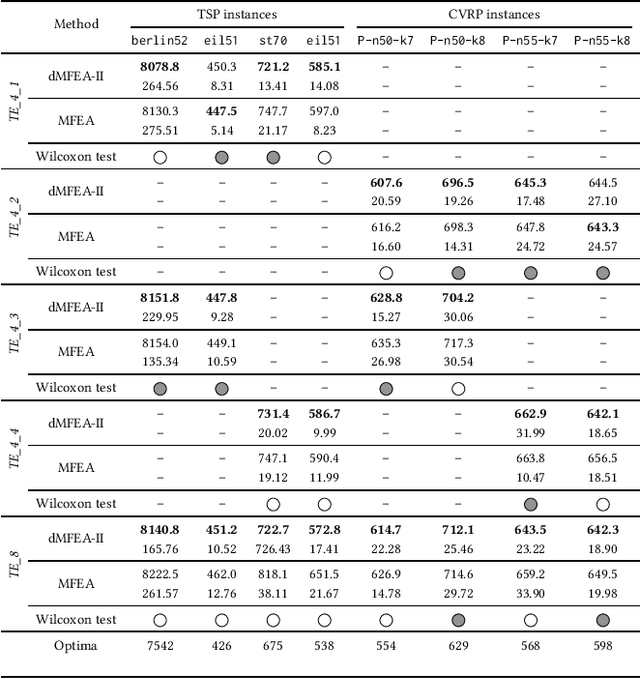
Abstract:The emerging research paradigm coined as multitasking optimization aims to solve multiple optimization tasks concurrently by means of a single search process. For this purpose, the exploitation of complementarities among the tasks to be solved is crucial, which is often achieved via the transfer of genetic material, thereby forging the Transfer Optimization field. In this context, Evolutionary Multitasking addresses this paradigm by resorting to concepts from Evolutionary Computation. Within this specific branch, approaches such as the Multifactorial Evolutionary Algorithm (MFEA) has lately gained a notable momentum when tackling multiple optimization tasks. This work contributes to this trend by proposing the first adaptation of the recently introduced Multifactorial Evolutionary Algorithm II (MFEA-II) to permutation-based discrete optimization environments. For modeling this adaptation, some concepts cannot be directly applied to discrete search spaces, such as parent-centric interactions. In this paper we entirely reformulate such concepts, making them suited to deal with permutation-based search spaces without loosing the inherent benefits of MFEA-II. The performance of the proposed solver has been assessed over 5 different multitasking setups, composed by 8 datasets of the well-known Traveling Salesman (TSP) and Capacitated Vehicle Routing Problems (CVRP). The obtained results and their comparison to those by the discrete version of the MFEA confirm the good performance of the developed dMFEA-II, and concur with the insights drawn in previous studies for continuous optimization.
COEBA: A Coevolutionary Bat Algorithm for Discrete Evolutionary Multitasking
Mar 24, 2020
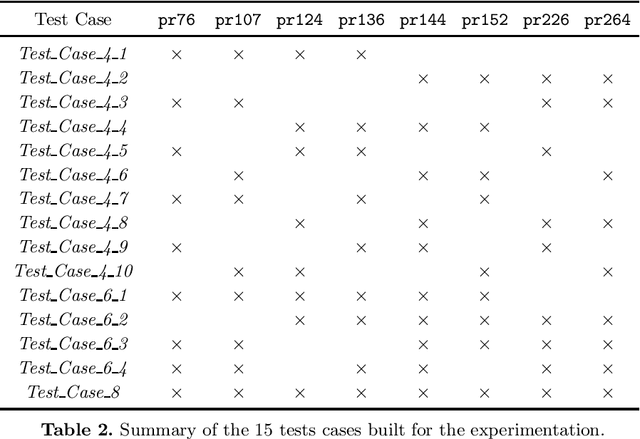
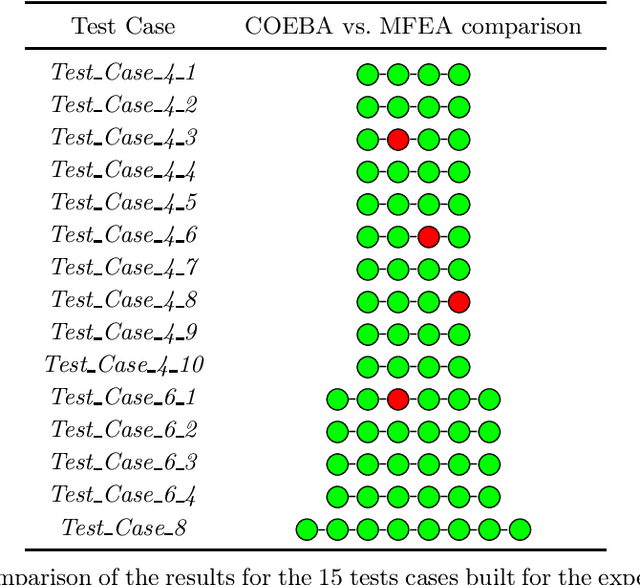
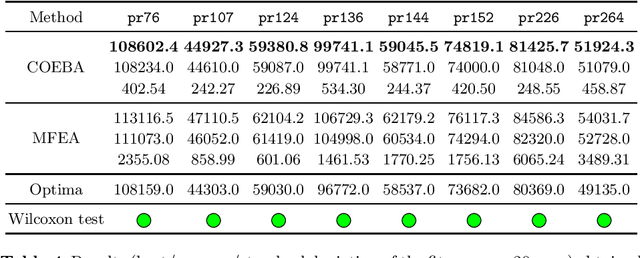
Abstract:Multitasking optimization is an emerging research field which has attracted lot of attention in the scientific community. The main purpose of this paradigm is how to solve multiple optimization problems or tasks simultaneously by conducting a single search process. The main catalyst for reaching this objective is to exploit possible synergies and complementarities among the tasks to be optimized, helping each other by virtue of the transfer of knowledge among them (thereby being referred to as Transfer Optimization). In this context, Evolutionary Multitasking addresses Transfer Optimization problems by resorting to concepts from Evolutionary Computation for simultaneous solving the tasks at hand. This work contributes to this trend by proposing a novel algorithmic scheme for dealing with multitasking environments. The proposed approach, coined as Coevolutionary Bat Algorithm, finds its inspiration in concepts from both co-evolutionary strategies and the metaheuristic Bat Algorithm. We compare the performance of our proposed method with that of its Multifactorial Evolutionary Algorithm counterpart over 15 different multitasking setups, composed by eight reference instances of the discrete Traveling Salesman Problem. The experimentation and results stemming therefrom support the main hypothesis of this study: the proposed Coevolutionary Bat Algorithm is a promising meta-heuristic for solving Evolutionary Multitasking scenarios.
 Add to Chrome
Add to Chrome Add to Firefox
Add to Firefox Add to Edge
Add to Edge